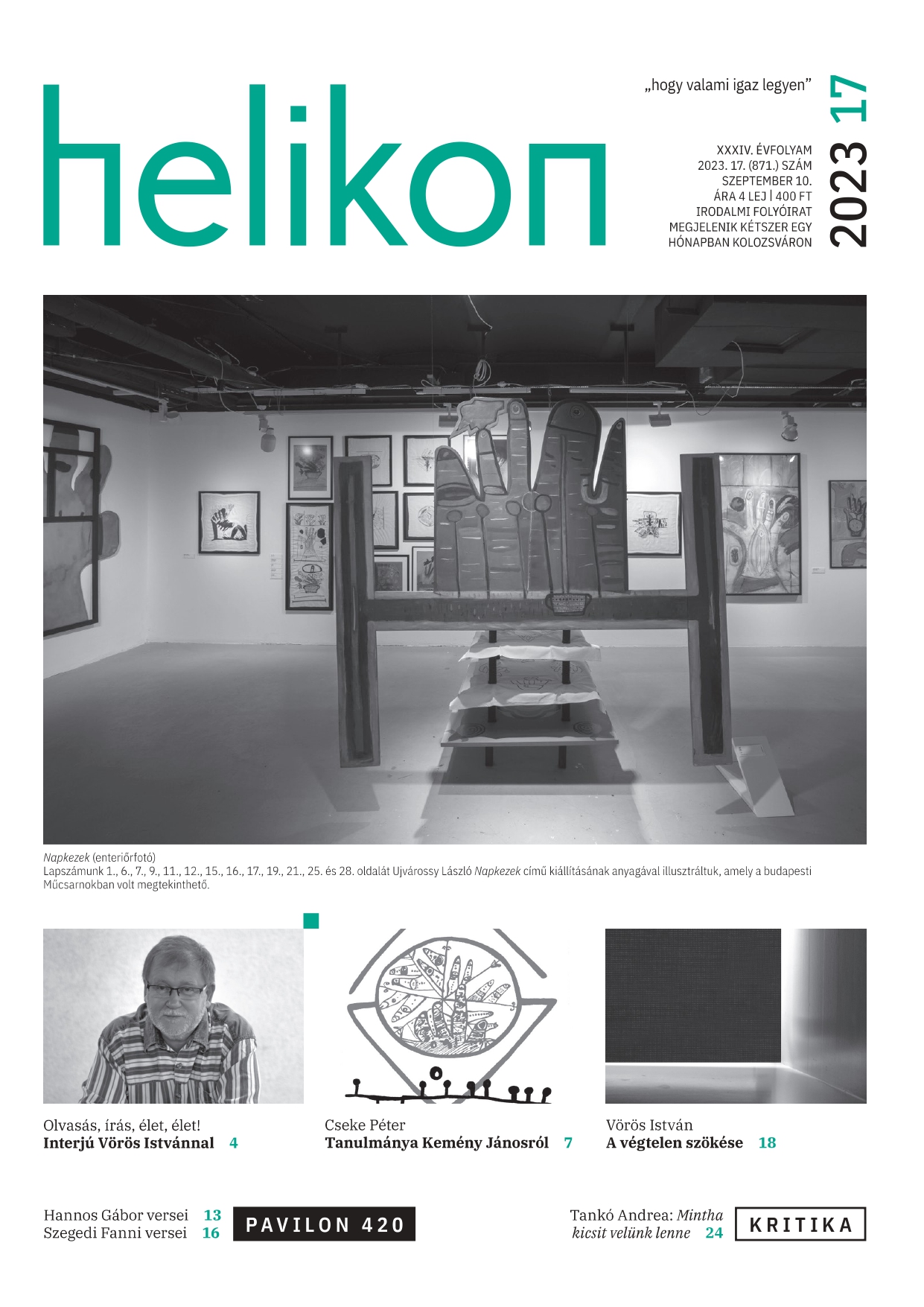
Mintha kicsit velünk lenne
Andrea Tankó's book review of Vörös István: Nem ti kussoltok! – két tudat versei, Budapest, Scolar, 2021.
More...We kindly inform you that, as long as the subject affiliation of our 300.000+ articles is in progress, you might get unsufficient or no results on your third level or second level search. In this case, please broaden your search criteria.

Andrea Tankó's book review of Vörös István: Nem ti kussoltok! – két tudat versei, Budapest, Scolar, 2021.
More...
Dorottya Tőtős's book review of Fekete Richárd: Módosítás. Scolar kiadó, Budapest, 2022.
More...
Dorottya Tőtős's book review of Bokor Krisztián: #folyamatosjelen. Scolar kiadó, Budapest, 2022.
More...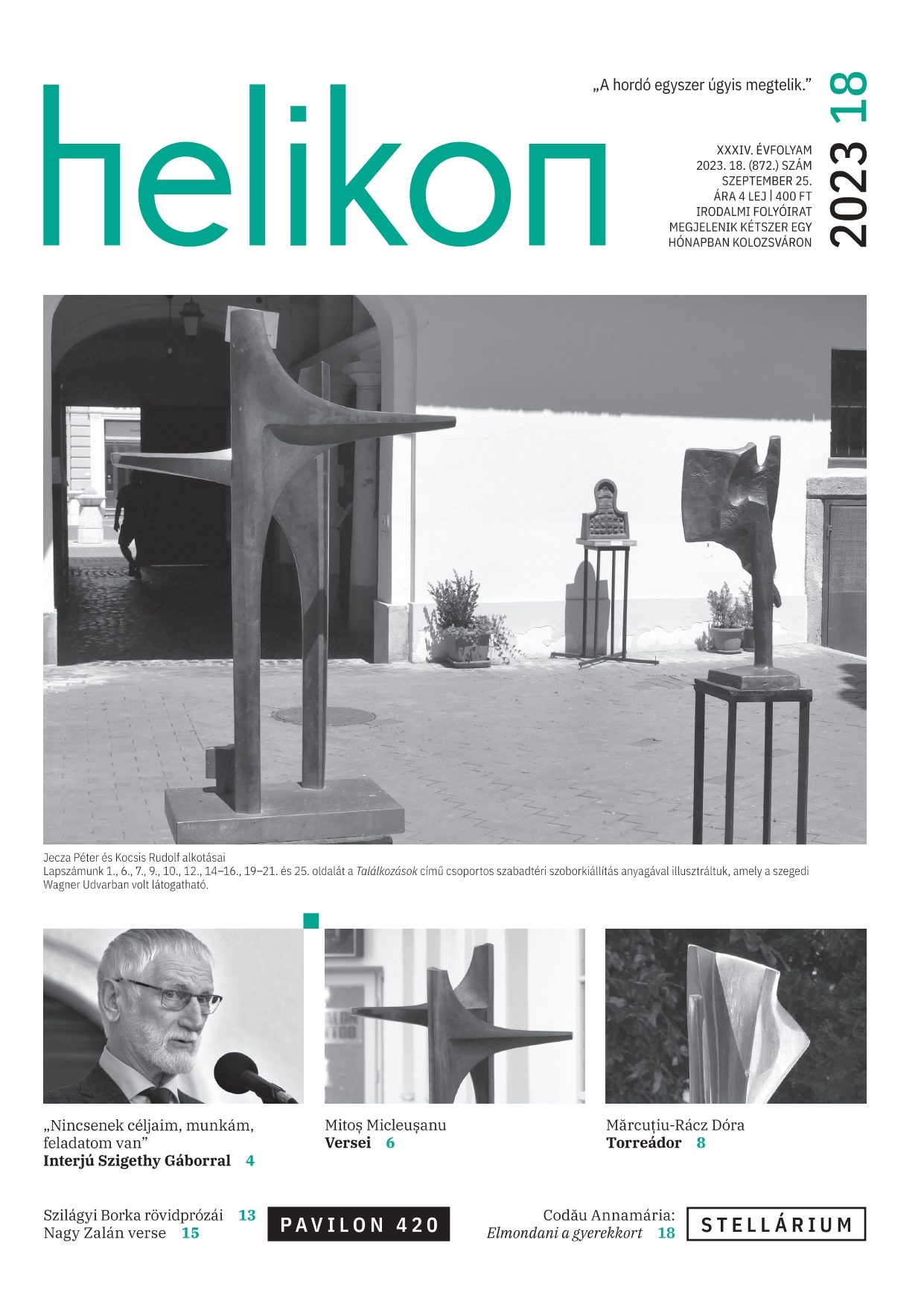
A serie of short stories by Imre Wirth.
More...
Csaba Horváth's interview with Literary and theatre historian Gábor Szigethy.
More...

Ferenc Zsidó's book review of Ferencz Imre: Takarodó. ProPrint Kiadó, Csíkszereda, 2023.
More...
Pál Böjthe's review of Kemény János: Kakukkfiókák. Ed. Cseke Péter. Kriterion Könyvkiadó, Kolozsvár, 2022.
More...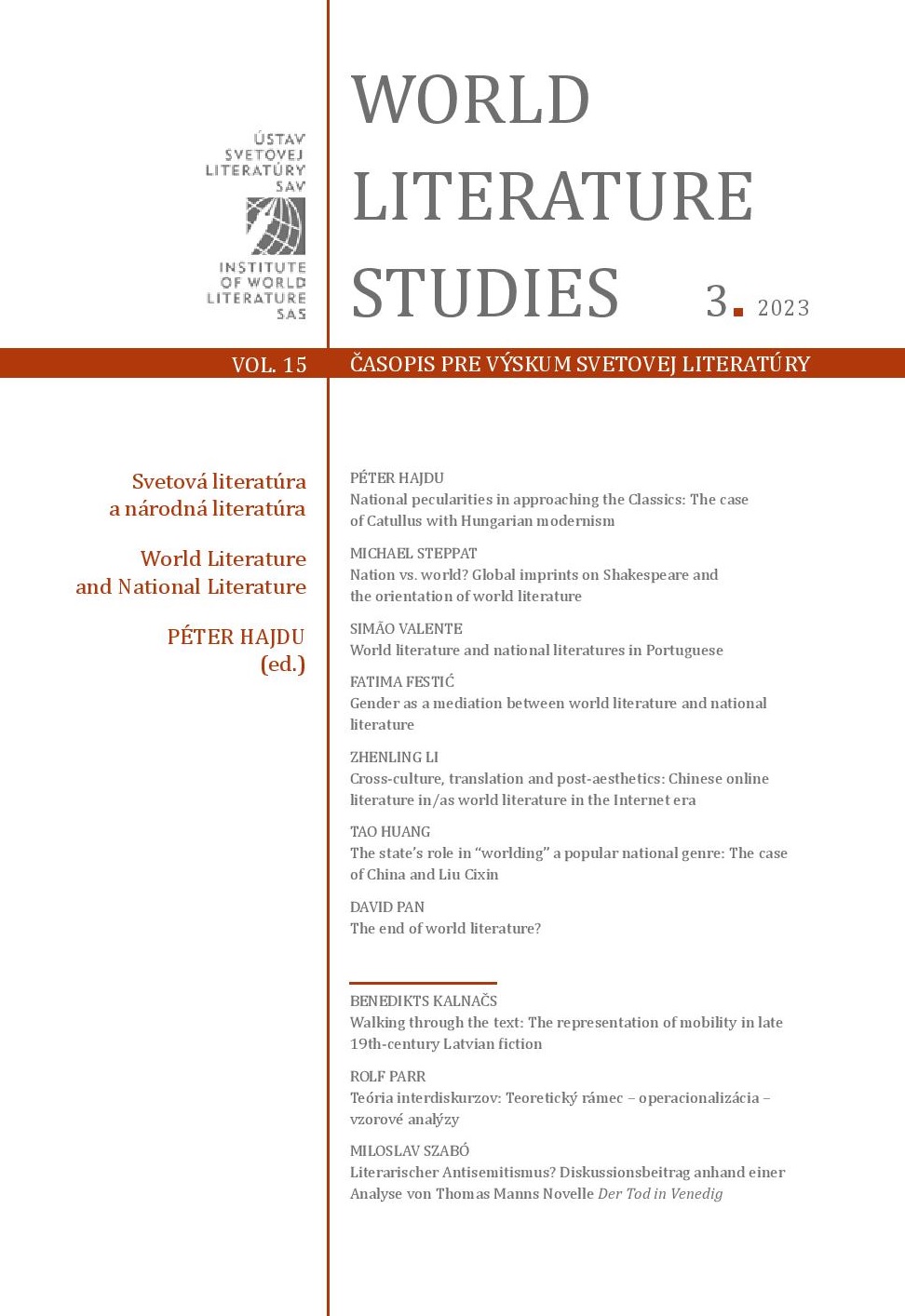
The Greco-Roman Classics form a body of texts that belong indisputably to world literature, yet they are often left outside the scope of comparative literature because of their ambiguous relationship to the concept of national literature. This article describes the current situation of academia in which the comparative approach to the Classics is limited and tests the possibility of regarding them as a code or a language of comparison. The attitudes of various national literatures towards the Classics in different historical periods are revealing not only of ancient literary traditions but also about modern ones, and provide a solid basis for comparison. The second part of the article discusses the presence of Catullan poetry in Hungarian modernist literature as a case study. Roman poetry was invoked mostly by some progressive circles of the interwar literary field to promote the development of various linguistic facets of the modernist poetic discourse. This example shows how the Classics enter the world literary space through national literatures’ active involvement with them.
More...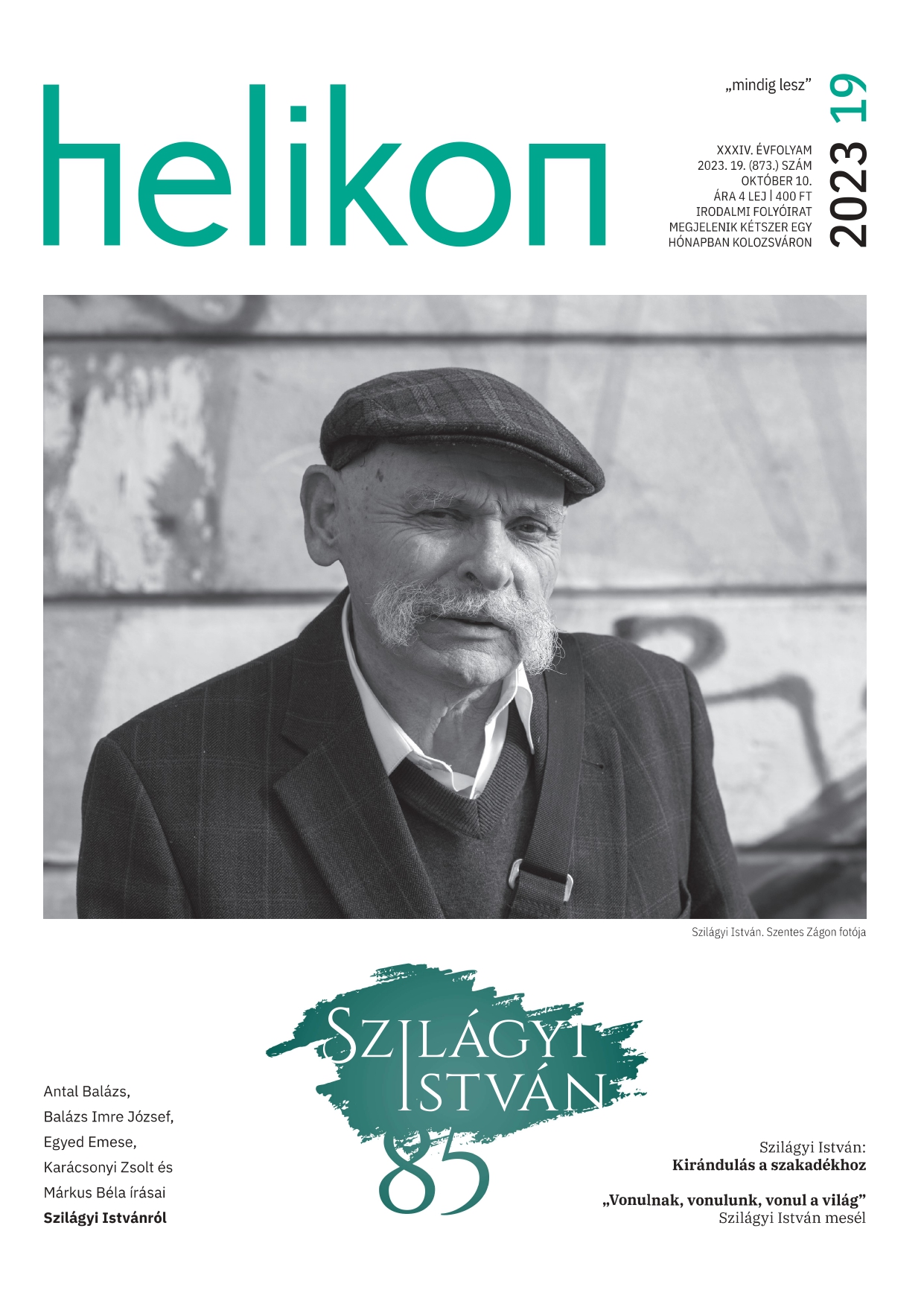


Imre József Balázs's book review of István Szilágy: "Távolodó jégtáblákon".
More...
Emőke Nyeste's book review of Andrea Gál: "Farkasszem és Kistarisznya"
More...
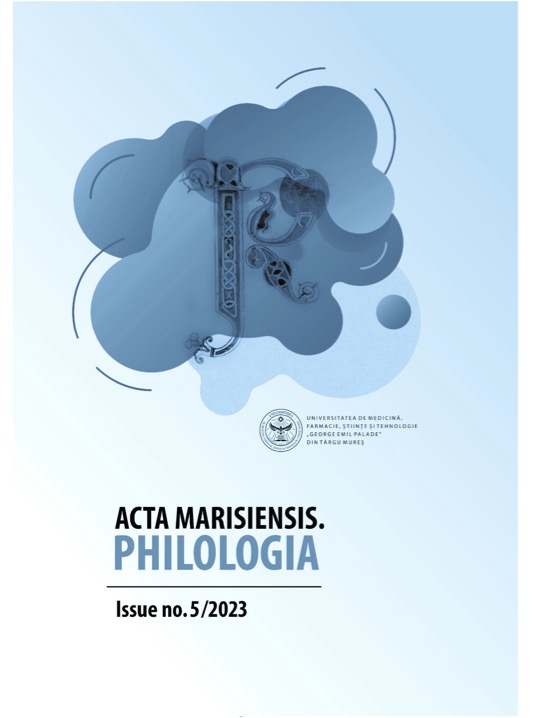
Under the patronage of Napkút Kiadó publishing house, the poetry volume entitled Fényhajlίtás was published in Budapest, an admirable translation from the works of Romanian poet Nichita Stănescu, performed by translator Kiss Zsuzsánna, in 2017. With the "phantom of a... disappeared author” (U. Eco), with the accomplished art and overwhelming deepness of a neo- modernist (and not only that!)" as Nichita Stănescu, the translator cannot "negotiate" only by using equal modalities of negotiation with the source-text and a similar talent.
More...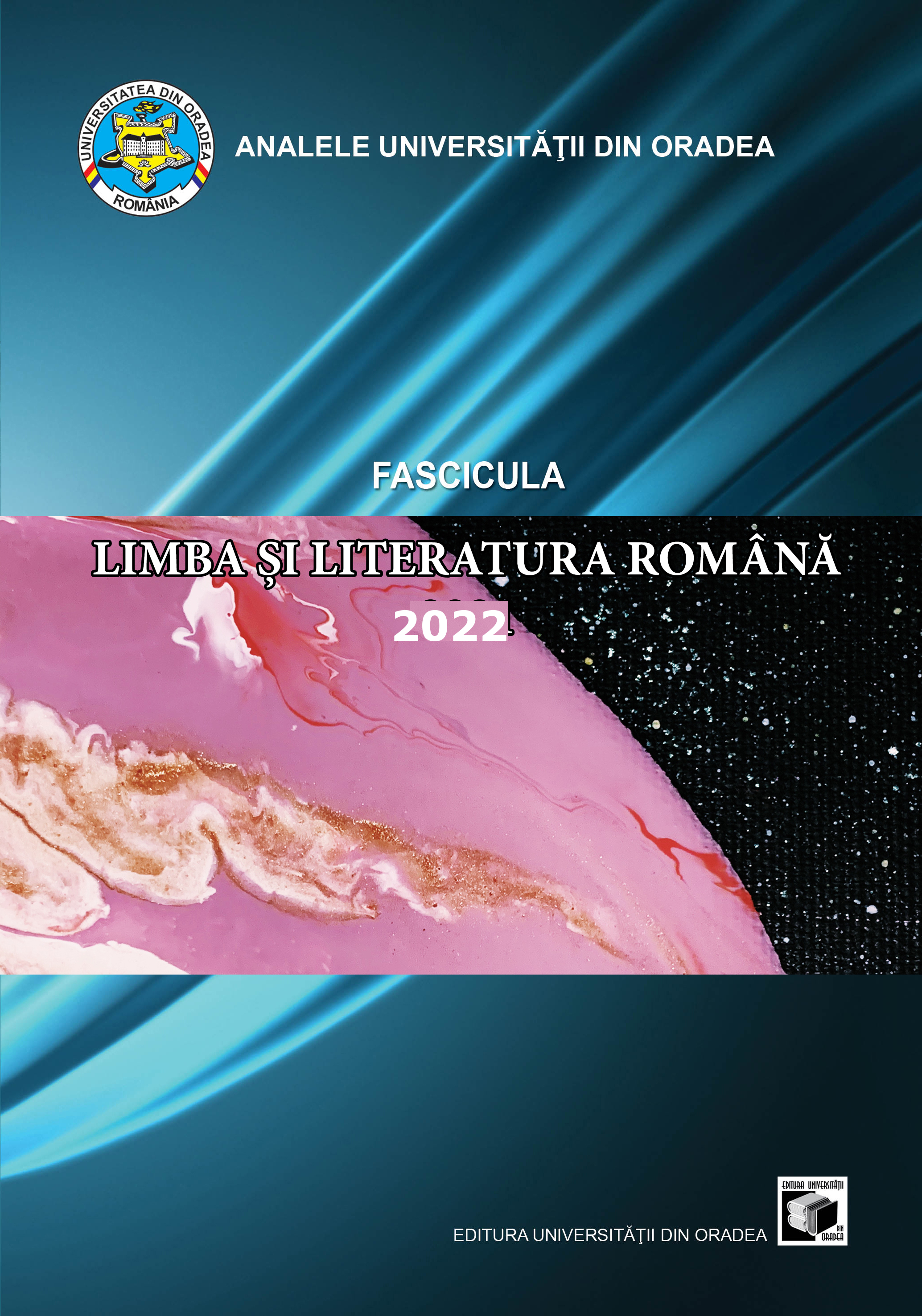
Following the theoretical considerations in the introduction, the book "Bihorul poetic postbelic: O perspectivă critică asupra liricii româno-maghiare" (Bihor's Postwar Poets: A Critical Perspective on Romanian-Hungarian Poetry) presents the various stages of Romanian and Hungarian poetry in Bihor. They truly begin, in the author's opinion, with Iosif Vulcan and Ady Endre, although the Salonta native Arany János also lived and worked here. The volume covers the poets of the present and the poets of the past of a geographical area.
More...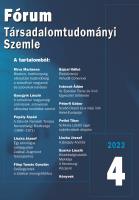
For years after the political turn in 1989, there was still the illusion that the work done for the Hungarian community in Czechoslovakia (and later in Slovakia) during the dictatorship was of value, that summarising it was an important task, and that taking an account of it was vital for the intellectual construction that was beginning anew. This was the leitmotif of some of the works of the author of this paper at that time, such as the mini-monographs on László Koncsol and Zsigmond Zalabai written at the end of the last millennium, but also the monograph on Péter Rákos, written in collaboration with László G. Kovács in 2005. The passing of time seems to have swept away the positive feeling towards the Hungarian community in Czechoslovakia, and has cast the former community involvements in a different (even ironic) light. Not least, previously latent inter-group or inter-personal tensions were exacerbated, the community became ideologically divided, then ideological debates were pushed into the background, the cornerstones of canon formation changed, and the aesthetic values were transformed. After a long period, the author of this study re-read his own monograph on Zalabai, published in 1998 (and expanded in a second edition in 2004), wondering how the considerations that he has developed in retrospect have repercussions on the perception of public and intellectual activities.
More...
This review examines a multi-authored work that presents edited versions of papers presented at a conference of the same title as the book. The reviewers' comprehensive attention to detail provides a thorough and expert literary analysis of the publication
More...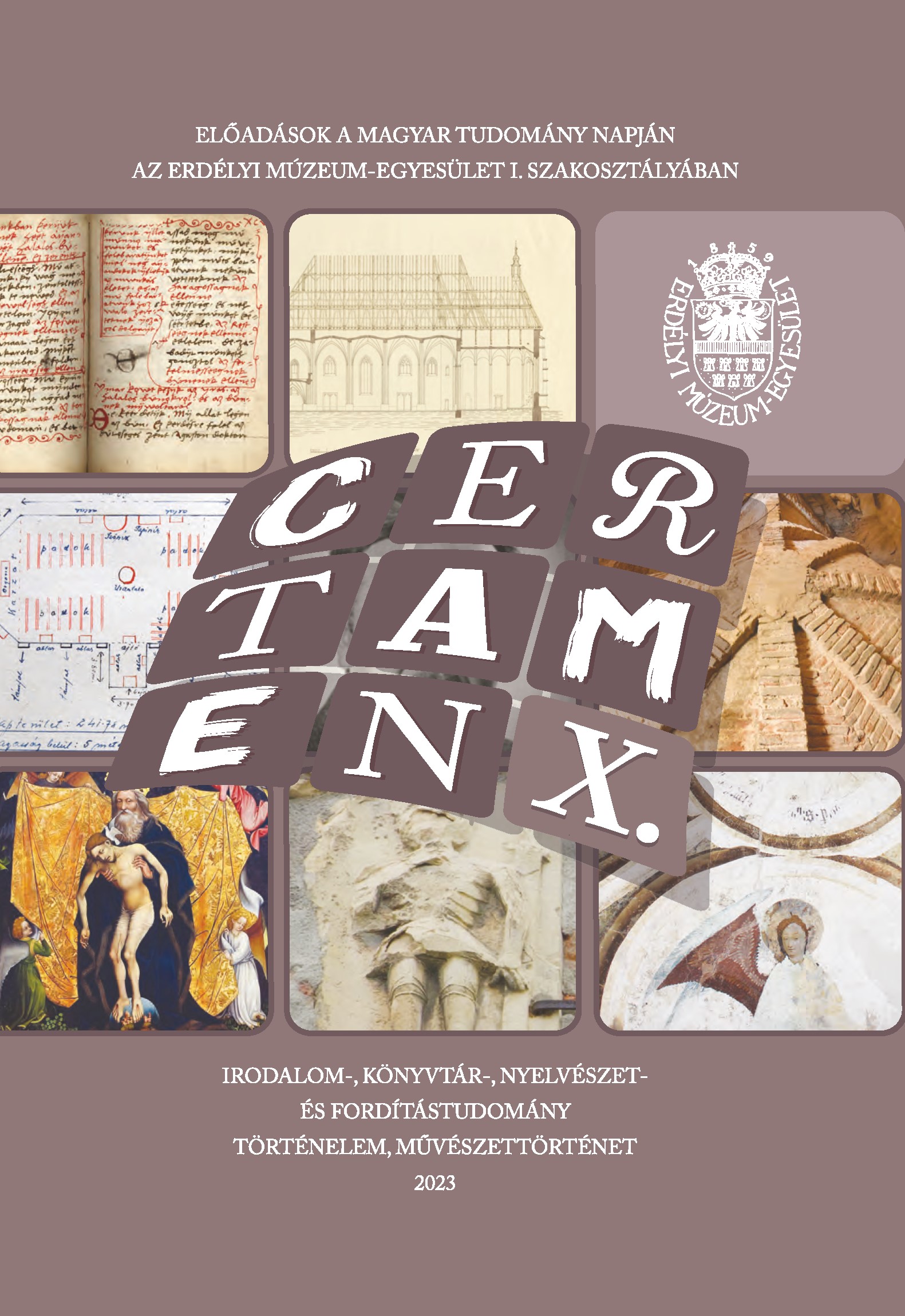
This study presents the work of a naive author, Irénke Rozsnyai. She was born in 1953 in the village of Călărași, Cluj county, and lived most of her life in Suceagu. From a young age she became ill with an incurable disease that affected her ability to move. Thus, she had to lock herself in the house, becoming more and more lonely. Writing and poetry became a possible escape for her. Most of her poems have a gloomy tone, the disease leaving its imprint in the content of the texts. That is why for her the motivation for writing is her loneliness caused by an illness, and she is seeking solace by formulating her thoughts and feelings, often oppressive.
More...
The paper seeks to answer the question of how the autobiographically inspired narrative can become intersubjective and universal in its own right. Andrea Tompa’s novel entitled Home (2020) is examined as autofiction, that is, a combination of autobiography and fiction, with a special attention to generic, thematic and rhetorical markers and textual strategies that create autofiction as a complex discursive modality. Through the narrative and rhetorical strategies of autofiction, a very rich field of reflexivity is formed in the novel, in which the search for self is fulfilled as an intercultural, interlingual experience, an – intertextual and intermedial – journey in space, time, philosophy, literature and arts, transforming the private into the universal.
More...